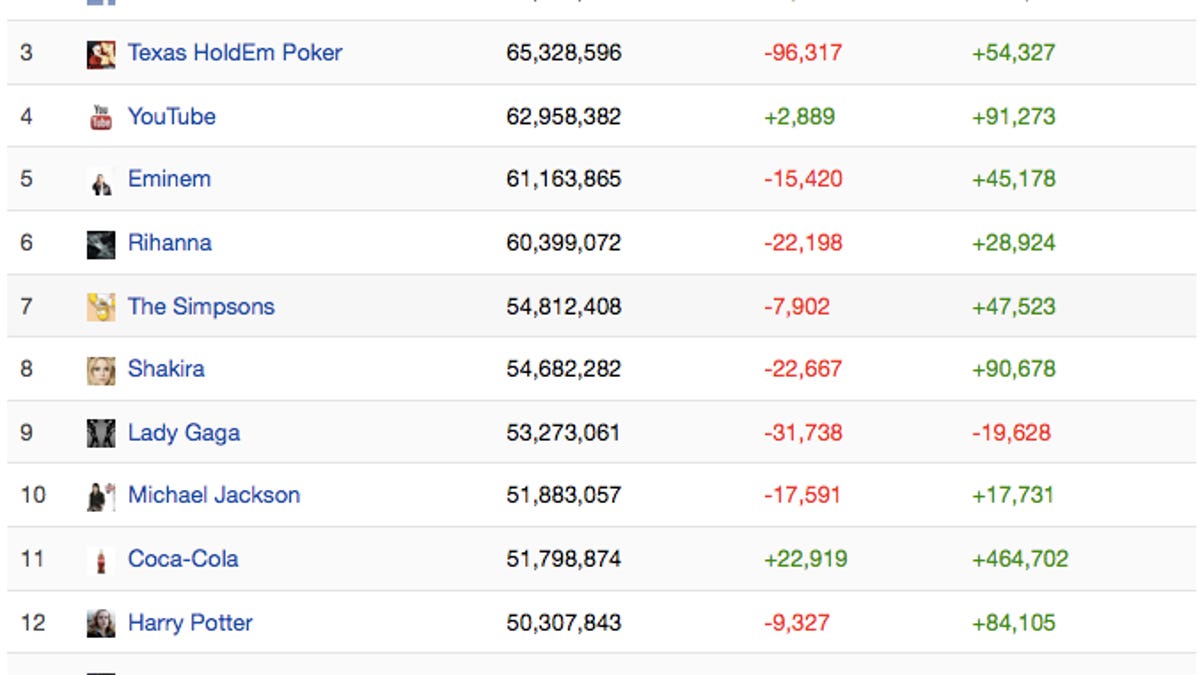Facebook trashes fake accounts, users, and likes
As the social network sweeps clean all bogus activity, page fan counts drop by the tens of thousands.

The purge has commenced. Facebook is throwing out all fake users, accounts, and likes. That's right, all of those thousands of questionable thumbs ups are starting to disappear.
The social network announced last month that it'd start this massive deletion process, but it was unclear when. According to TechCrunch, Facebook confirmed today that the time is now.
Over the course of the day, tens of thousands of fans were quietly dropped from Facebook Pages. Data from Facebook metrics site PageData shows that Zynga's Texas HoldEm Poker lost 96,000 fans today, while Rihanna lost 22,198, and Michael Jackson lost 17,591. Even the Facebook like champion Eminem had fans vanish today -- his count dropped by 15,420.
Facebook said last month that the reason it was sweeping its site of phony activity was to cut down on suspicious likes and make sure that users were dealing with real people and businesses.
Here's more from a blog post in August:
These newly improved automated efforts will remove those Likes gained by malware, compromised accounts, deceived users, or purchased bulk Likes. While we have always had dedicated protections against each of these threats on Facebook, these improved systems have been specifically configured to identify and take action against suspicious Likes.
Despite cleaning house, the social network has said that most pages will see less than 1 percent of likes removed. As long as users go by the rules and haven't indulged in buying likes from shady sources, the difference should be minimal.
In the end, this eradication should come as good news to most users because it means less spam and phishing on the social network.
CNET contacted Facebook for more information and we'll update the story when we hear back.

